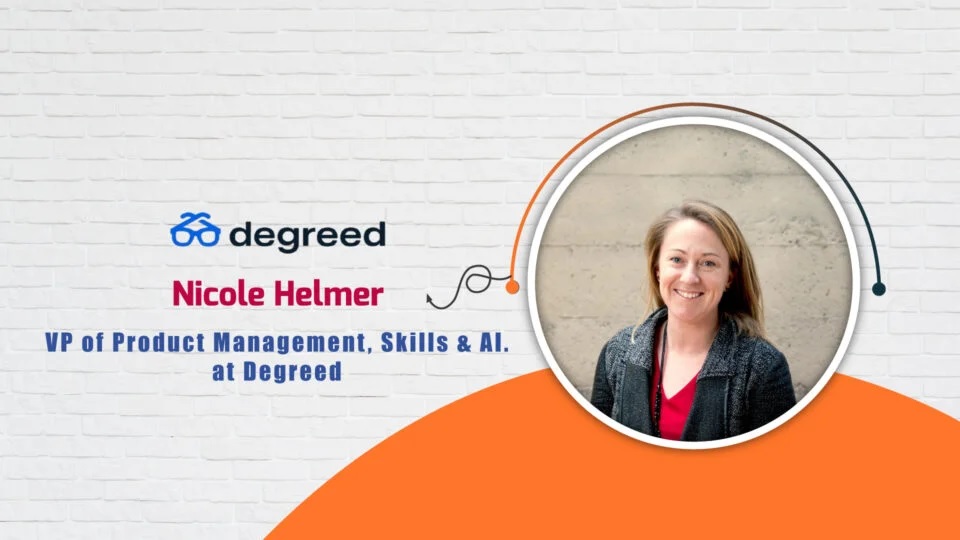
Hello Nicole, welcome to AITech. Could you tell us about your professional background and being VP of Product Management at Degreed?
My background is a prime example of how taking a skills view opens new opportunities and career mobility. I’ve worked in different roles and industries: defense/public service, consumer advertising, travel, retail, and high-tech. I’ve worked in procurement and operations roles, I’ve been in product and account management roles, and I’ve been a data scientist. Just before joining Degreed, I was leading learning globally for SAP.
While they may seem unrelated, a skills view of each of these roles shows how similar and overlapping they are.
As someone with experience upskilling and reskilling 50,000 product development and technical colleagues, what key skills do you believe are crucial for future success?
There are some common skills that everyone will need to develop and hone for future success. These aren’t earth-shattering predictions, but in an age of AI-automated or assisted work, critical thinking, empathy, project management, lean process improvement, and organizational skills will become more critical across nearly all jobs in all industries.
On a separate note, it’s worth noting that communication skills will increase in importance not only because human interactions will be higher value interactions but also to produce the desired result from an LLM, the ability to communicate questions, challenges, and needs with precision will be similar to being a highly efficient coder today.
As much as I believe taking a skills view will create a more granular understanding of the labor force, an organization’s workforce, or a person’s career opportunities – I think it’s the unique combinations and permutations of different skills where we’ll see the creative innovation happening in the future. What if a violinist applies their knowledge of vibration to a mechanical engineering problem? Organization design, process management, and team skill composition will be even more critical.
How can companies foster a culture of continuous learning and curiosity when it comes to AI skills, and how do you make sure to apply this at Degreed?
The ability of companies to motivate their employees to learn AI skills is a potentially great catalyst for creating a culture of learning, but I would put them in that order, not the reverse.
A culture of learning is one in which individuals know that learning and change go hand-in-hand. To stay agile and resilient as an individual or an organization, the only solution is to sense what potential changes may come your way and invest the time to learn about them.
To Read Full Interview, Visit @ https://ai-techpark.com/aitech-interview-with-nicole-helmer/
Related Articles –
Explainable AI Is Important for IT